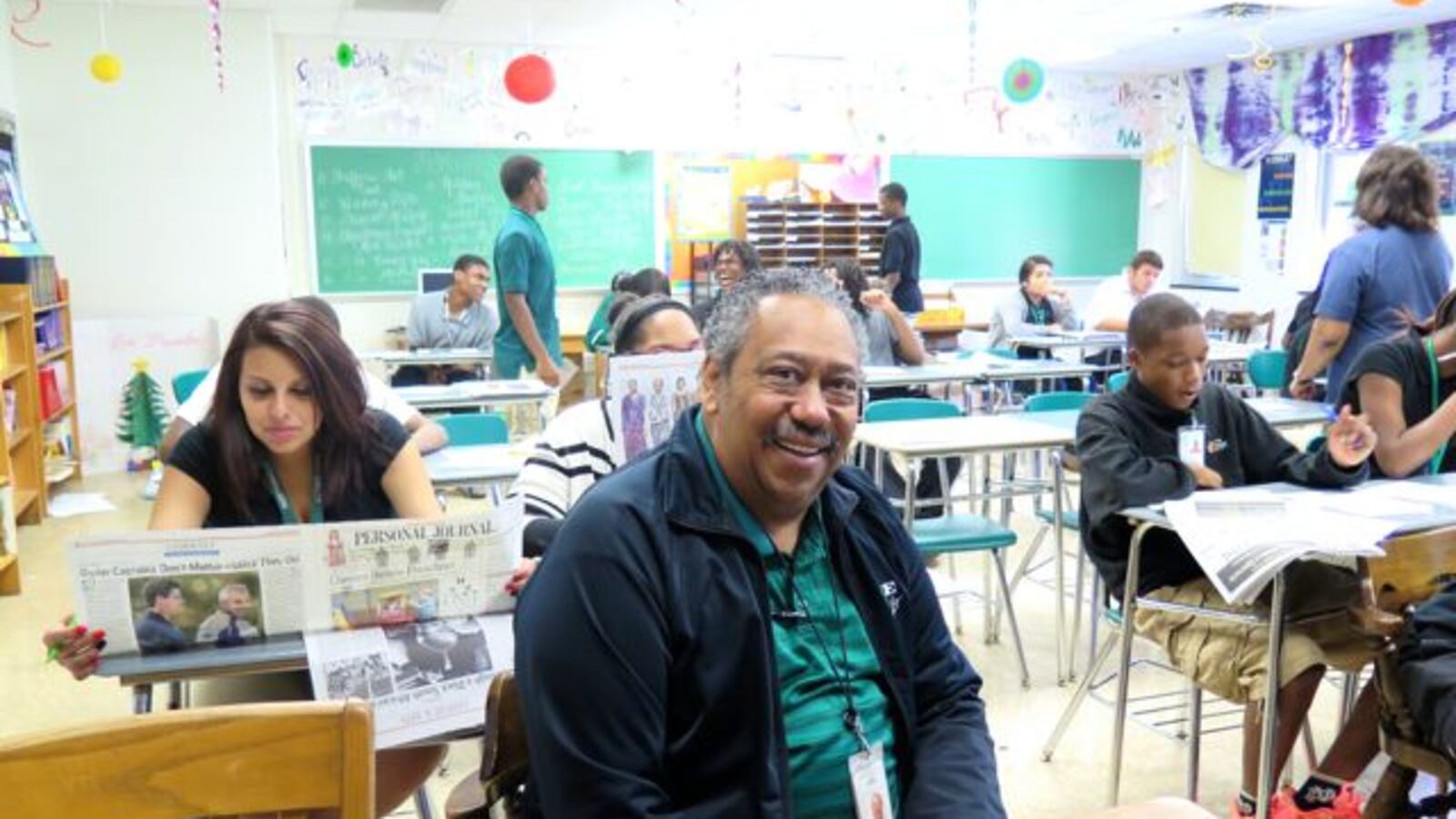Chalkbeat asked the 10 candidates running for an Indianapolis Public School Board to answer a survey about their positions on issues facing the district and its students. Below is one response. If you want to see how these answers compare to other candidates, please visit our interactive election tracker at in.chalkbeat.org/ipselection2014.
Michael Brown is the longest serving IPS school board member. He was first elected in 1998 and has served as board president three times. He has three children who graduated from district schools, and is a coach and frequent volunteer at Northwest High School. Brown is running for re-election in District 5 against LaNier Echols.
1. Do you support the direction of the school district under Superintendent Lewis Ferebee?
Yes.
What, if anything, do you like about Ferebee’s leadership of the district? What would you change?
Dr. Ferebee is a listener and believes in collaboration, both very positive traits.
2. Do you believe the operation of IPS’ central office is efficient?
No.
What is your opinion of the efficiency of IPS’ central office operations? How much money should be spent outside the classroom on high-level district operations?
I am a firm believer that we should always find ways to funnel money to the classroom. I believe that we are moving to right size our district (central office). We are not there yet, but we are moving in the right direction.
3. Should the school district partner with charter schools?
Yes.
Do you support the House Bill 1321 “innovation network” law? What is the ideal relationship between the district and a charter school operator?
Our history has partnered with charters before there was a Public Law 1321. We have a collaboration with Enlace and have had a partnership with KIPP long before this current arrangement. We had a partnership with Goodwill (Industries) and Northwest High School called Tech-West before (Indianapolis Metropolitan High School) became a charter.
The ideal relationship is one that benefits our students! Student success should be our only agenda.
4. Do you support the state’s voucher program?
Maybe.
If yes, why do you support vouchers? If not, would you propose ending it?
I would like to see vouchers used for low-income parents for early education. I do not believe that the current system is reaching the right families.
5. The district is moving toward more partnerships with outside groups like The Mind Trust and Stand for Children. Do you support stronger partnerships with school reform organizations?
Maybe.
If not, why not? If yes, what would you envision those partnerships with charter school organizations look like?
If we can agree on improving educational outcomes for low-performing students. Often reformers are not clear on what real reform looks like. Our school district has been reforming for quite some time. We have implemented programs that are very successful and improved outcomes for students. Creating new schools that start with high-performing students are not reformed, but restructured.
6. Teachers haven’t received a pay raise in several years. What budget changes, if any, would you support to make this happen?
We must pay all of our employees a wage that will allow them to provide for their families. I propose that we continue to right size our district to assure we can add to our employees compensation package. We are losing great employees to other school districts, and some are leaving the education field.
7. What percentage of a teacher’s performance evaluation score should be based on student test score growth?
The key word is growth. We must use an individual student growth model for teacher evaluations, not from year-to-year class level — a test similar to the Terra Nova to show how much a student is progressing. If a student is showing more than one year growth we are making positive progress. That should certainly play a part in the evaluation process.
8. The state takeover process has been scrutinized recently. What’s your proposal for how to improve schools that have been rated an F for six straight years?
Those schools need more resources to become successful. The state allocated more resources by using outside and sometimes out-of-state partners. We need to use local partners and focus on the root of the problem. We need to look at like schools that are performing well with the same socioeconomic status and family structure, and replicate what they are doing differently.
9. Ferebee has identified 11 low-performing priority schools to receive extra support and resources. What is your vision for how to improve IPS’ low-performing schools?
We must reach out to the student population and support them with wraparound services. I have been in the district long before I was a board member and found that when you provide support to classrooms, you will yield positive results.
We must first evaluate why these students are not being successful, and then make adjustments to the game plan.
10. What is your vision for how schools within the district should be governed? What role should principals and their assistants have in leading schools?
I am a firm believer in school autonomy! We must assure that we have the right leader in place to make informed decisions. There should be guidelines, but decisions should be made at the building level. Our central office should be a support system for schools.
11. What didn’t we ask? Tell us about your platform, or another issue you’re passionate about.
My platform is simple. I believe children come first. I have always been an advocate for children, and my experience is crucial to the future of IPS. I have grandchildren, nieces and nephews that I believe are receiving the educational support they need to be contributing members to our city. I have skin in the game. This is my passion. I want all of our 30,000 students to have everything they need for a great future life.


